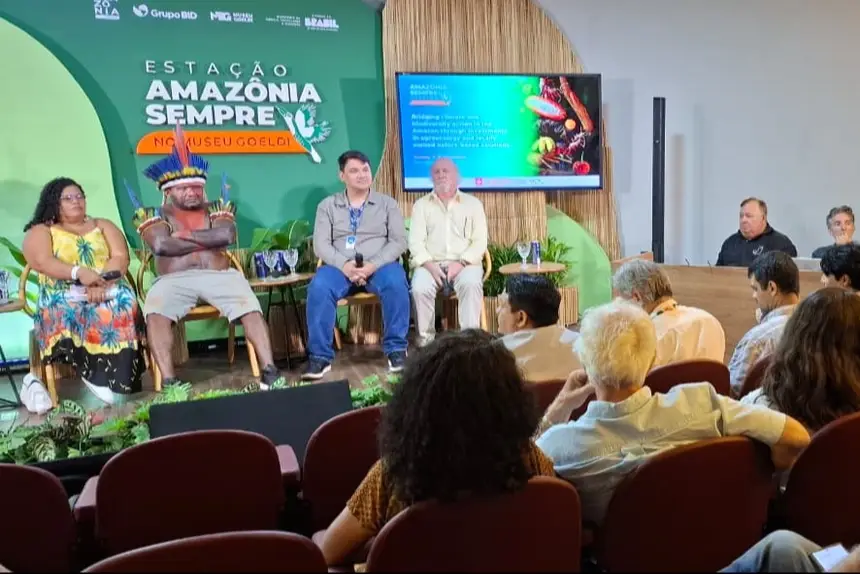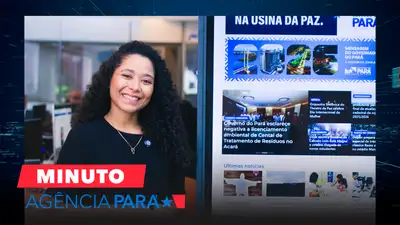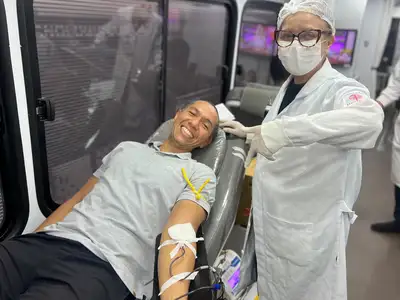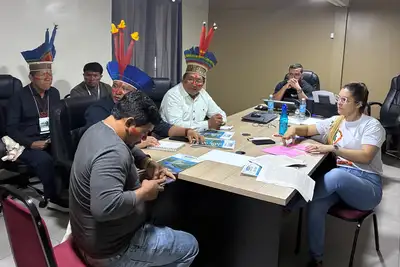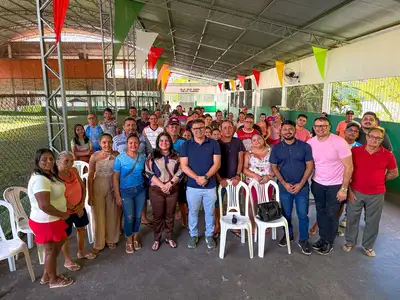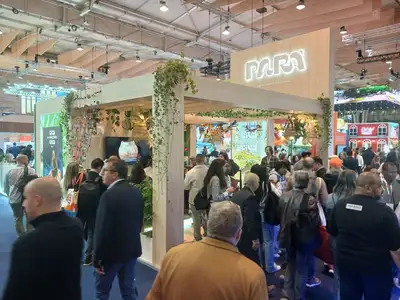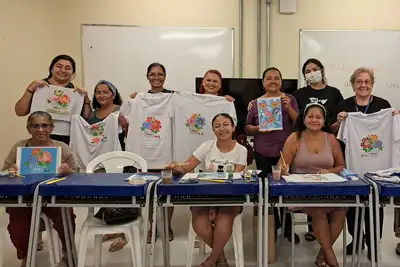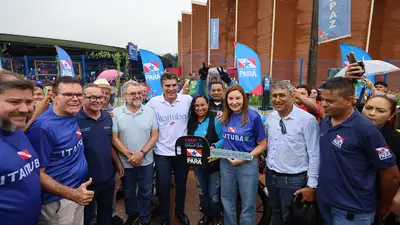Sedap discusses the implementation of nature-based public policies at 'Estação Amazônia Sempre'
The event is part of the COP30 action agenda and promotes debates with representatives from the Amazonian governments, multilateral organizations, climate funds, banks, and civil society.

Aligned with the COP30 action agenda, the Secretary of Agricultural Development and Fisheries (Sedap) participated in the panel "Challenges and opportunities to connect climate action and biodiversity in the Amazon through investments in locally owned nature-based solutions," part of the event Estação Amazônia Sempre, which took place this Tuesday (11) at the Museu Paraense Emílio Goeldi.
The Sedap representative, fishing engineer Tiago Catuxo, discussed with civil society, indigenous people, quilombolas, and researchers the challenges and solutions for implementing public policies in the Amazon.
"The big challenge of making nature-based public policy is understanding the diversity of environments, territories, and cultures in the state. The important part of this process is to build these public policies with the communities; they cannot be created inside offices, and there is a need to go to the territories. This is the big challenge!" he explains.
The event was organized by Cifor-Icraf, an institution that combines the Center for International Forestry Research (Cifor) and the International Center for Agroforestry Research (Icraf), along with the Swiss Regional Cooperation Center in Lima (SDC Hub Lima). The panel was attended by representatives from the Swiss Embassy, as well as NGOs, researchers, journalists, and the community.
Challenges faced in the territories
Panelist and quilombola researcher from the Quilombo de Itamoari in the municipality of Cachoeira do Piriá (PA), Márcia Carmo Souza, highlighted the challenges faced in practicing agrobiodiversity in the territory bordering the Gurupi River.
"I share here some problems in the territories both in northeastern Pará and in other regions. Today, we are constantly threatened by the use of pesticides, droughts, and also by illegal mining, which is a constant threat. Our goal is to seek projects that support good practices without harming the environment," she emphasizes.
Agroforestry as a solution
Indigenous panelist from the Tembé people, from the Alto Rio Guamá Indigenous Land, Wendel Tembé, a researcher at the Federal Institute of Pará (IFPA) Castanhal, emphasized that the solution lies in agroforestry.
"This agroforestry project is the solution for us because it will reduce burning, decrease poisoning, and provide good quality food on our plates. The direction is to seek initiatives, partners, and authorities from abroad so that resources reach indigenous, black, and quilombola peoples," he emphasizes.
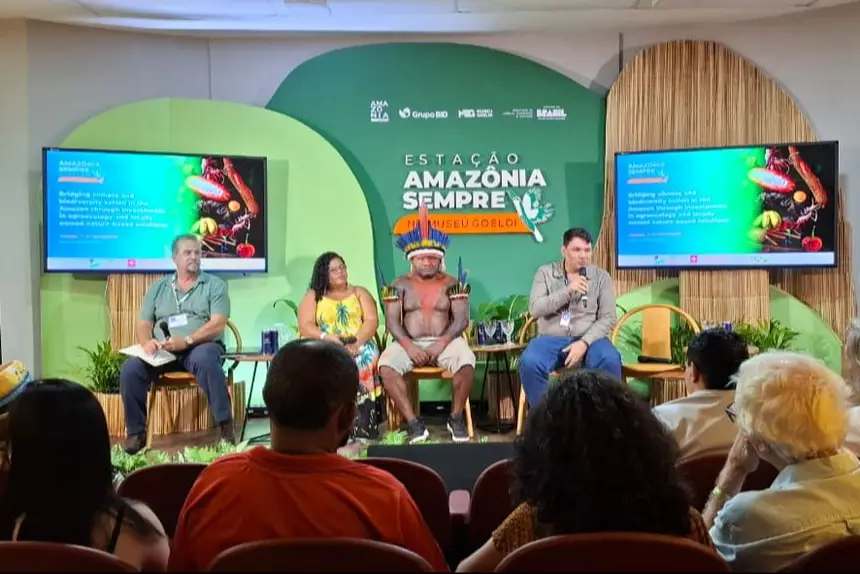
Panel - In addition to Wendel Tembé (IFPA Castanhal), Márcia Carmo Souza (Quilombo de Itamoari), and Tiago Catuxo (Sedap), the panel included researcher Thomas Mitschein, a professor at the Federal University of Pará (UFPA) and coordinator of the program Tropics in Motion. The mediation was conducted by André Miccolis (Cifor-Icraf).
Sedap at COP30 - Sedap is also participating in other COP30 programs with panels open to the public in different spaces. On the 12th, at 3:30 PM, the panel "The role of the Sustainable Territories Policy in the transition to low emissions" (Seringueira Room - Green Zone, Pará Pavilion); On the 19th, at 3:45 PM, the panel "Geographical Indications: Protection of Traditional Knowledge and Sustainable Development" (Sectoral Chamber of Agriculture and Green Economy - Green Zone); and on the 20th, Sedap will have two participations: from 5:15 PM to 6:30 PM, presenting the topic "Agriculture - Decarbonization and Low Carbon Agriculture in the Legal Amazon." Shortly after, from 6:45 PM to 7:45 PM, the topic "Agriculture - Productive Chains and Sustainability: Public Policies for the Amazonian Bioeconomy" will be discussed.



